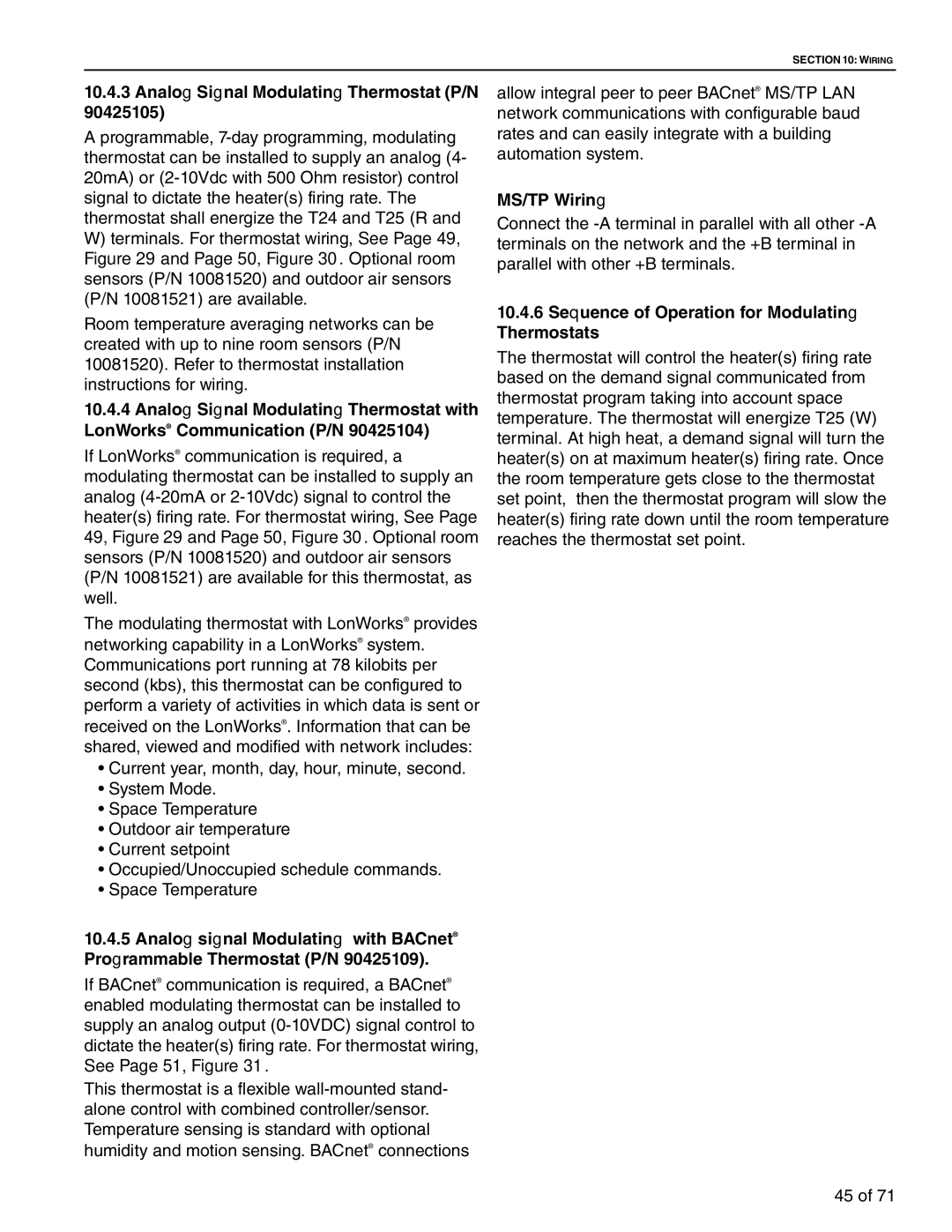SECTION 10: WIRING
10.4.3Analog Signal Modulating Thermostat (P/N 90425105)
Aprogrammable,
Room temperature averaging networks can be created with up to nine room sensors (P/N 10081520). Refer to thermostat installation instructions for wiring.
10.4.4Analog Signal Modulating Thermostat with LonWorks® Communication (P/N 90425104)
If LonWorks® communication is required, a
modulating thermostat can be installed to supply an analog
The modulating thermostat with LonWorks® provides networking capability in a LonWorks® system. Communications port running at 78 kilobits per second (kbs), this thermostat can be configured to perform a variety of activities in which data is sent or received on the LonWorks®. Information that can be shared, viewed and modified with network includes:
•Current year, month, day, hour, minute, second.
•System Mode.
•Space Temperature
•Outdoor air temperature
•Current setpoint
•Occupied/Unoccupied schedule commands.
•Space Temperature
allow integral peer to peer BACnet® MS/TP LAN network communications with configurable baud rates and can easily integrate with a building automation system.
MS/TP Wiring
Connect the
10.4.6Sequence of Operation for Modulating Thermostats
The thermostat will control the heater(s) firing rate based on the demand signal communicated from thermostat program taking into account space temperature. The thermostat will energize T25 (W) terminal. At high heat, a demand signal will turn the heater(s) on at maximum heater(s) firing rate. Once the room temperature gets close to the thermostat set point, then the thermostat program will slow the heater(s) firing rate down until the room temperature reaches the thermostat set point.
10.4.5Analog signal Modulating with BACnet® Programmable Thermostat (P/N 90425109).
If BACnet® communication is required, a BACnet® enabled modulating thermostat can be installed to supply an analog output
This thermostat is a flexible
45 of 71
